-
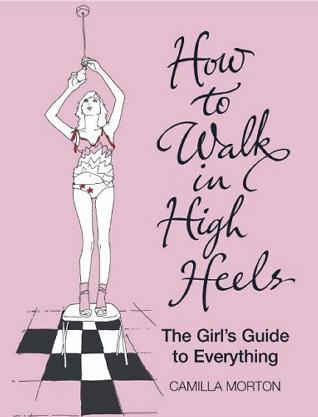
How to Walk in High Heels
The bestselling U.K. sensation, hailed as "the most fabulous instruction manual the world has ever seen" by Vogue.com Can you make yourself up in five minutes flat? Make the first move without breaking a sweat? Hang a picture without becoming unhinged? Get out of a car -- or an unpleasant situation -- gracefully in a short skirt? Load an iPod as effortlessly as a dishwasher? If not, international style and fashion journalist Camilla Morton can help you navigate these and more than two hundred other hazards of modern living with grace and aplomb. Much more than just a style manual or crash course in social skills, How to Walk in High Heels also illuminates the finer points of achieving better homes and gardens, tackling technophobia, climbing the career ladder, and joining the jet set. From the practical, such as what to do when a heel breaks and how to catch a mouse, to the imaginative, such as how to enjoy karaoke and swim in sunglasses, How to Walk in High Heels overflows with useful nuggets of advice delivered in the author’s inimitable witty style, accompanied by a foreword from Dior’s John Galliano and a Louis Vuitton trunkful of insight from experts including: -Manolo Blahnik on How to Pick a Shoe -Dolce & Gabbana on How to Get Ready in Five Minutes -Gisele Bundchen on How to Look Good in a Photo -Jade Jagger on How to Compile Your Own Soundtrack This comprehensive do-everything-better bible takes the guesswork out of flaunting your fabulousness so that you can stop teetering and start striding confidently through the obstacle course of life. -
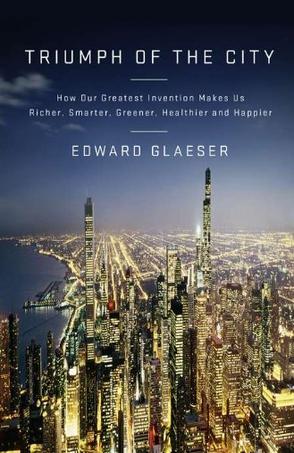
Triumph of the City
A pioneering urban economist offers fascinating, even inspiring proof that the city is humanity's greatest invention and our best hope for the future. America is an urban nation. More than two thirds of us live on the 3 percent of land that contains our cities. Yet cities get a bad rap: they're dirty, poor, unhealthy, crime ridden, expensive, environmentally unfriendly... Or are they? As Edward Glaeser proves in this myth-shattering book, cities are actually the healthiest, greenest, and richest (in cultural and economic terms) places to live. New Yorkers, for instance, live longer than other Americans; heart disease and cancer rates are lower in Gotham than in the nation as a whole. More than half of America's income is earned in twenty-two metropolitan areas. And city dwellers use, on average, 40 percent less energy than suburbanites. Glaeser travels through history and around the globe to reveal the hidden workings of cities and how they bring out the best in humankind. Even the worst cities-Kinshasa, Kolkata, Lagos- confer surprising benefits on the people who flock to them, including better health and more jobs than the rural areas that surround them. Glaeser visits Bangalore and Silicon Valley, whose strangely similar histories prove how essential education is to urban success and how new technology actually encourages people to gather together physically. He discovers why Detroit is dying while other old industrial cities-Chicago, Boston, New York-thrive. He investigates why a new house costs 350 percent more in Los Angeles than in Houston, even though building costs are only 25 percent higher in L.A. He pinpoints the single factor that most influences urban growth-January temperatures-and explains how certain chilly cities manage to defy that link. He explains how West Coast environmentalists have harmed the environment, and how struggling cities from Youngstown to New Orleans can "shrink to greatness." And he exposes the dangerous anti-urban political bias that is harming both cities and the entire country. Using intrepid reportage, keen analysis, and eloquent argument, Glaeser makes an impassioned case for the city's import and splendor. He reminds us forcefully why we should nurture our cities or suffer consequences that will hurt us all, no matter where we live. -
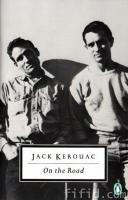
On the Road
-
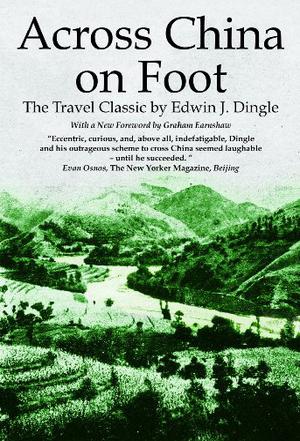
Across China on Foot
This classic China travel book was first published in 1911. Edwin Dingle, an English journalist and eccentric, recounts his adventures as he travels up the Yangtze River from Shanghai and then walks southwest from Chongqing across some of China's most wild and woolly territory to Burma. Along the way, Dingle describes life and society in southwest China in a readable and sensitive way. -
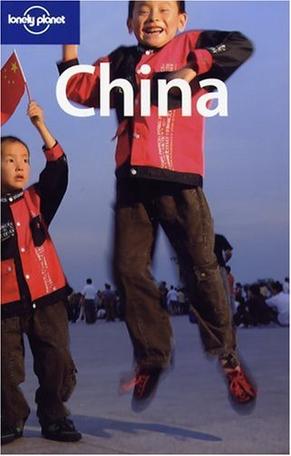
Lonely Planet China
-
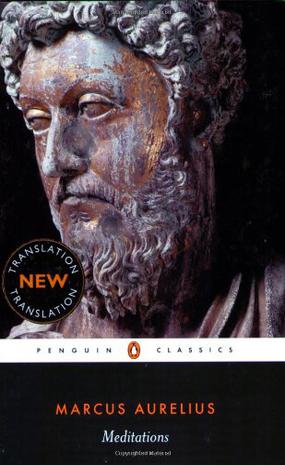
Meditations
One measure, perhaps, of a book's worth, is its intergenerational pliancy: do new readers acquire it and interpret it afresh down through the ages? The Meditations of Marcus Aurelius, translated and introduced by Gregory Hays, by that standard, is very worthwhile, indeed. Hays suggests that its most recent incarnation--as a self-help book--is not only valid, but may be close to the author's intent. The book, which Hays calls, fondly, a "haphazard set of notes," is indicative of the role of philosophy among the ancients in that it is "expected to provide a 'design for living.'" And it does, both aphoristically ("Think of yourself as dead. You have lived your life. Now take what's left and live it properly.") and rhetorically ("What is it in ourselves that we should prize?"). Whether these, and other entries ("Enough of this wretched, whining monkey life.") sound life-changing or like entries in a teenager's diary is up to the individual reader, as it should be. Hays's introduction, which sketches the life of Marcus Aurelius (emperor of Rome A.D. 161-180) as well as the basic tenets of stoicism, is accessible and jaunty. --H. O'Billovich --This text refers to the Hardcover edition. ?The emperor Marcus Aurelius, the proverbial philosopher-king, produced in Greek a Roman manual of piety, the Meditations, whose impact has been felt for ages since. Here, for our age, is his great work presented in its entirety, strongly introduced and freshly, elegantly translated by Gregory Hays for the Modern Library.? ?Robert Fagles -- Review --This text refers to the Hardcover edition. 'He has provided Farquharson's text with a lucid introduction, a select bibliography and light but helpful annotation. His selection of letters brings both Fronto and Marcus pleasingly to life.' Times Literary Supplement --This text refers to the Paperback edition.